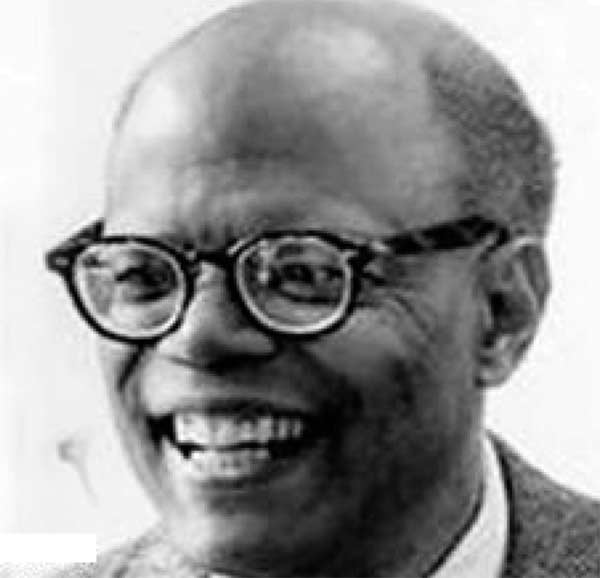
THIS is a second article in a three part series to coincide with Nobel Laureate Week
World War Two affected people of all races, creeds and geographical land masses. Its aftermath led to three occurrences which influenced the writings of Sir Arthur. These included decolonization, racial tensions and questions surrounding the role of government. The end of the war spurred debate on what ideological consensuses should be invented to avert a recurrence of war. Consequently issues such as racial justice, political independence, economic growth and the re-distribution of wealth were topical in the mid 1950’s to 1970’s. Sir Arthur sought to contribute to this debate through his writings and musings by using economic theory to provide solutions to these pertinent issues.
In his piece Education and Economic Development which was published in 1961 Sir Arthur pointed out that the purpose of education was not “to enable men to produce more goods and services” but to “enable men to understand better the world in which they live, so that they may more fully express their potential capacities, whether spiritual, intellectual or material”. This particular quote is as relevant today as it was in the 1960’s. Education, especially in poor developing countries was important to Sir Arthur as he saw it as an essential building block to growth and prosperity. This piece aims to shed some light on Sir Arthur’s thoughts on the subject which in turn can provide some level of instruction on the way forward for St Lucia.
In Lewis’s opinion a poor country doesn’t have the resources to spend on both the quality and quantity of education as a richer one and therefore needs to prioritize its education expenditure. To assist in making this approximation of priorities Lewis defined two types of education namely ‘investment’ and ‘consumption’ education whereby he defined investment education as education which facilities increases in productive capacity and consumption education which enhances quality of life solely of the individual.
Lewis stressed that distinctions must be made between rich and poor countries and that findings concerning education in rich countries should not be applied carte balance on poor ones. One of the first distinctions Lewis cited was the absorptive capacity of the society regarding the newly educated. Citing India as an example he noted the prevalence of an oversupply of university and other graduates who are often forced to accept jobs of lower pay and skill level than the training they received due to a lack of suitable jobs being available. Before expanding on this issue Lewis pointed out that productivity and human capital gains have inaccurately been ascribed solely to the effects of education. This in his view was a misnomer and the more correct assertion was that gains in human capital is a function of education, public health and robust institutional frameworks. A developing country should therefore aim to expand all three areas when attempting to improve human capital .
This overemphasis on education at the expense of health, political and justice systems led to poor countries having a limited ability to absorb educated persons and thereby paradoxically diminishing their economic development opportunities. The primary contributing factor to this lack of absorptive capacity was in his opinion the unbalanced nature of granduants from the education system, with balance referring to the mix between “humanities and sciences” or “general and vocational studies”, or primary versus secondary versus higher levels of education. Within the “poor” nations there appeared to be a surplus of persons trained in literary studies and a deficit of skilled personnel in the scientific, biological and mechanical arts. This imbalance and subsequent shortage contributes to a high cost of educated labour relative to average national income. Consequently in cases where the provision of a service requires persons educated in either the sciences or vocational areas this service is relatively expensive. In the case of Saint Lucia data from the 2014 Education Digest suggest that education spending accounts for approximately 14.0 per cent of total government expenditures while a review of the Saint Lucia 2014 General and Technical CXC results show that only 39.0 per cent of the number who sat the exams took a Science, Technology, Engineering and Math STEM subject (with a pass rate of 64.8%) while at the Division of Arts Science and General Studies 2013 data show that 27.6% took a STEM subject (with a pass rate of 69.1%).
Another negative spill over effect of this imbalance is that more and more educated persons take up jobs which were previously done by the uneducated. This in turn has the effect of raising wages of basic jobs and subsequently leading to ever higher entry requirements for the most remedial of jobs. This in a sense crowds out the uneducated who previously had the option of low skill, low pay jobs and thereby leads to large levels of structural unemployment. Another consequence of an education imbalance is that there is often a dearth of highly skilled personnel in STEM fields which leads to almost monopoly type conditions in these markets which serve to increase the price level. Consequently both low end and high end jobs become expensive robbing the nation of its competitiveness. Although not mentioned by Lewis another spill-over is that educational imbalances also lead to gaps between what employers require and what the education market produces. Some reports for instance suggest that local employers would like 44.0 % of workers to have tertiary level education/skill sets while the education system produces employees whereby only 7.0 % have obtained tertiary education. Lewis then focussed on each rung in the educational ladder namely;
i. Primary education : in the developing world provision of this level of education is expensive given the relatively high cost of primary school teachers. This occurrence leads to a high cost of basic education which has developmental consequences given that the monies spent have high opportunity cost. Compounding the high cost of providing this level of education is the limited absorptive capacity of developing economies for individuals with only primary education. High provision cost and limited absorptive capacity only serve to fuel social tension and frustration.
ii. Secondary education: persons with this level of education form the basis of public administration , business administration and basis of civil society i.e. teachers, nurses and civil servants. Consequently deficiencies here raise production cost and limit the formation of democratic social institutions. Increasing the levels here to meet the society’s needs is advised but is often hamstrung by high recurrent and capital cost.
iii. Adult education: seen by Lewis as the quickest way to improve productivity and facilitate a positive viscous cycle but noted that this has been the most ignored as most of the focus is on child education.
iv. University education: calculated using the examples of Nigeria and Jamaica Lewis found that the levels of university graduands was below required levels. The university graduand deficiency was particularly important because domestic universities contribute to the social development of a country through as Sir Arthur put it “the participation of its professors in local life and …research into local problems [and their solutions]”. Lewis then went on to explain the need for research entities in the developing world specializing in local problems and a liberal arts campus similar to that of the US. The liberal arts type university should have the advantage of lower teach cost and the need for capital investment while a more stringent academic type entity can also be set up on a smaller scale. University education therefore should therefore be deliberately tiered.
In concluding Lewis noted that education must be seen from a holistic perspective with attention paid to the composition of our educated work force in terms of both the depth of education i.e. basic versus advances and the diversity of the education itself, STEM’s versus literary and humanity based studies. Attention must also be paid to the ability of the economy to absorb what we produce. Imbalances lead to a twofold deterioration of a human capital the first in the limited scope for the educated to practise their craft and secondly in the crowding out of the uneducated by the educated in jobs which require low skill. The societal ramification of this redounds to high cost, structural unemployment and class tensions.
(Contribution from an NCPC Advisor: MrJanaiLeonce, Deputy Chief Economist, Ministry of Finance. For more information on the subject matter, please contact the National Competitiveness and Productivity Council on the Second Floor of the Financial Centre, Bridge St at 468 5576. You can also visit the Council’s Facebook page at https://www.facebook.com/stluciancpc or email them at stluciancpc@gmail.com).





![Simón Bolívar - Liberator of the Americas [Photo credit: Venezuelan Embassy]](https://thevoiceslu.com/wp-content/uploads/2025/12/Simon-Bolivar-feat-2-380x250.jpg)



